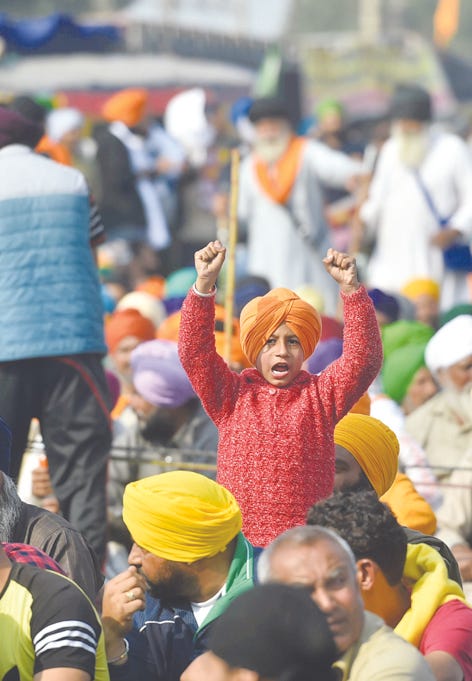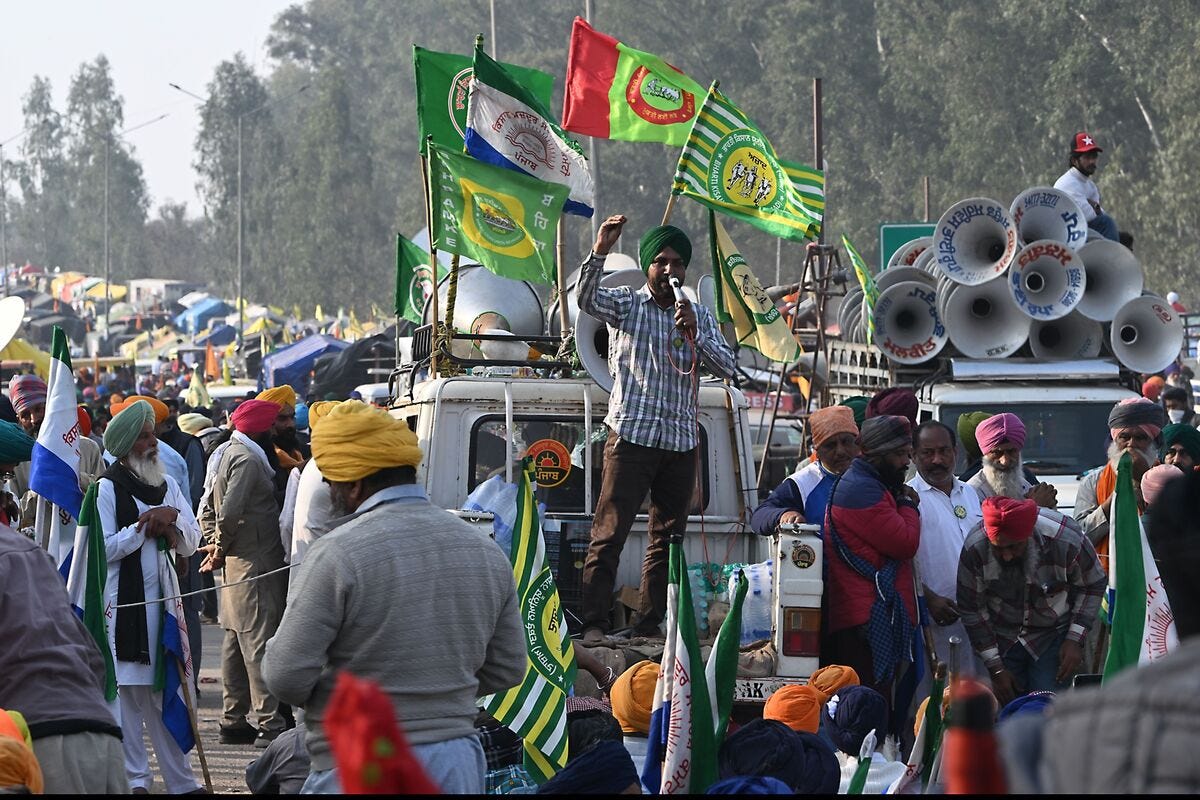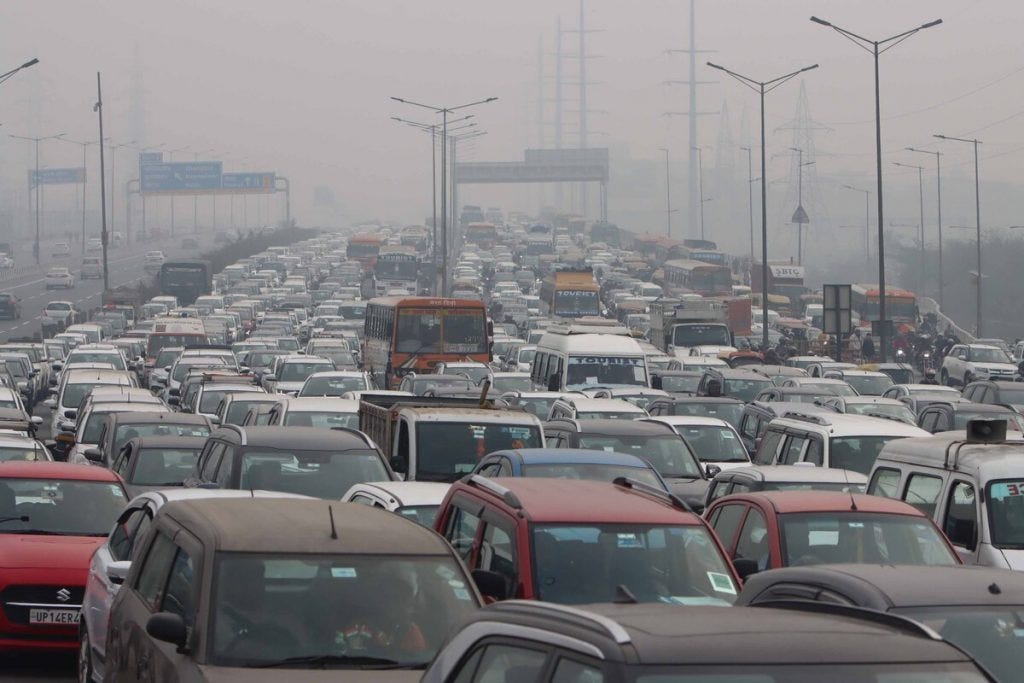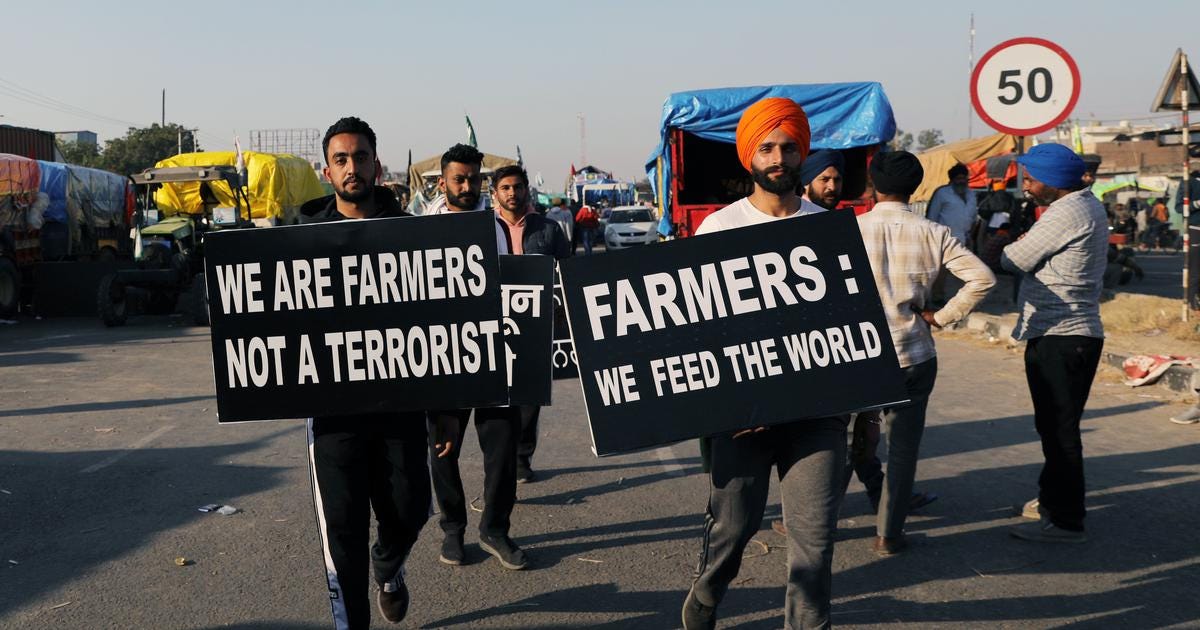Farmers' voices muted | Demands & Protest | Aditya's Newsletter
As India's farmers stand up for their rights, it's important to explore how democracy can help them and how we can support them better.

As India's farmers stand up for their rights, it's important to explore how democracy can help them and how we can support them better. This article dives into practical ways to back the farmers' cause, even amidst digital restrictions and government interference. We stress the need for informed solidarity, especially from the middle class, and suggest steering clear of biased news sources, like "godi media."
What is freedom of speech? Why does it matter?
Freedom of speech, as per the Indian Constitution and fundamental rights, refers to the right of every citizen to express their thoughts, opinions, and ideas freely without fear of censorship or punishment from the government.
Here's why it's important:
1. Promotes Democracy: Freedom of speech is essential for a functioning democracy as it allows citizens to participate in public discourse, criticize the government, and hold leaders accountable. Without this freedom, democracy cannot thrive, and authoritarianism may prevail.
2. Fosters Innovation and Progress: When people are free to express themselves, it encourages innovation, creativity, and the exchange of ideas. This freedom is vital for the development of society, as it enables individuals to challenge existing norms, explore new concepts, and contribute to social, cultural, and technological advancements.
3. Protects Individual Rights: Freedom of speech is a fundamental human right that protects individual autonomy and dignity. It allows people to assert their identities, advocate for their interests, and express their beliefs without fear of persecution or discrimination. By upholding this freedom, societies ensure that every person has the opportunity to live authentically and contribute meaningfully to public discourse.
Why farmers are protesting in delhi?
The 2024 Indian farmers' protest began on February 13, 2024, to demand a government guarantee on minimum support prices (MSP) for crop production. The protest is a repeat of the 2020–2021 Indian farmers' protest.
Indian farmers protested for a number of reasons, including:
A legal guarantee on MSP for all crops
Full debt waiver for farmers
Pension for farmers
Implementation of the Swaminathan Commission's formula
Withdrawal of cases against farmers during the 2020 protest
A waiver for farm loans
Penalties for those who sell fake seeds, pesticides, and fertilizers
A stronger guarantee that they can make money selling their wheat and rice crops

Minimum support price (MSP): Farmers want a legal guarantee of an MSP to ensure their crops are sustainable and they earn a decent income.
Wages: Farmers want their income doubled.
Debt waivers: Farmers want their debts waived.
Pensions: Farmers want pensions.
Policy changes: Farmers want policies that hurt them rolled back.
Crop prices: Farmers want guaranteed crop prices.
Fake products: Farmers want those who sell fake seeds, pesticides, and fertilizers to be penalized.
Who was Shubhkaran Singh? The young farmer who died during protests
As thousands of farmers continue protest at the two border points of Punjab and Haryana, a 21-year-old farmer was killed and about 12 police personnel were injured in recent clashes between security personnel and protesting farmers at Khanauri.
Farmer leaders said this was the first death in clashes since the 'Delhi Chalo' protests began on February 13.
The deceased has been identified as Subhkaran Singh, a resident of Baloke village in Punjab's Bathinda district.
Subhkaran had an injury to his head but the exact cause of his death could be known after a post-mortem examination, Patiala-based Rajindra Hospital's medical superintendent H S Rekhi told reporters.
Hailing from Balloh village in Bhatinda district, Shubhkaran was a contractual farmer. Making ends meet was his primary concern as Shubhkaran, with his uncle Charanjit Singh, remained involved in cultivating 20 acres of land on contract, reported Indian express.
While it is said that farmers coming out for protests are often "well off", Shubhkaran owned not more than 2 acres of land, and filled his house with farming tools and implements, the report added.
With a troubled childhood amid his parents' divorce, he was raised by his grandfather. He had quit studies after class XI to become a successful farmer and took charge of the family, which includes two sisters, after his grandfather passed away.
He was an active member of the Bhartiya Kisan Union Sidhupur, religiously attending its meetings and protests. He was a part of the 2021 farmers' agitation as well, which had forced the BJP government to roll back the controversial farm laws.
Shubhkaran Singh was among 15 farmers from his village who joined the 'Delhi Chalo' march.
Neighbours said Shubhkaran's family has about 2 acres of land. His mother has died, and his father has been suffering from a mental illness. He has two sisters, one is married, and the other is a student. The young farmer, they said, had taken a loan for his sister's wedding. A neighbour described the family as "poor".
Supporting Farmers' Protests: How Citizens Can Help

- Stay Informed: Understand farmers' concerns through reliable sources to form informed opinions.
- Promote Dialogue: Advocate for peaceful discussions between farmers and the government for constructive solutions.
- Express Solidarity: Show support on social media, attend protests peacefully, or engage in community conversations.
- Buy Local: Support farmers economically by purchasing their products directly or opting for local produce.
- Media Awareness: Question biased narratives, like "godi media," and seek balanced reporting to combat misinformation.
In conclusion, supporting farmers' protests is essential for democracy and social progress. By staying informed, advocating for dialogue, showing solidarity, buying local, and being media-savvy, we can contribute positively to this important cause. Remember, every action counts towards fostering positive change.
Sources: Times of India, The Hindu, BBC, Financial Express, Channel 4 News







